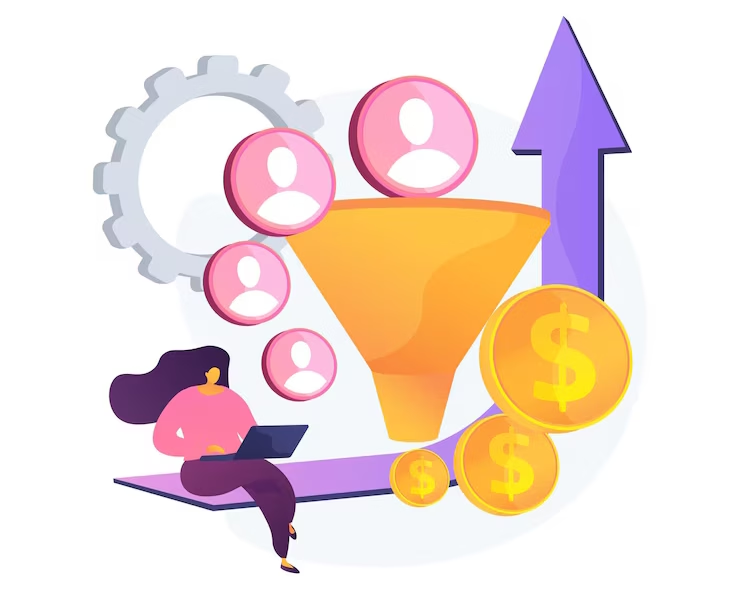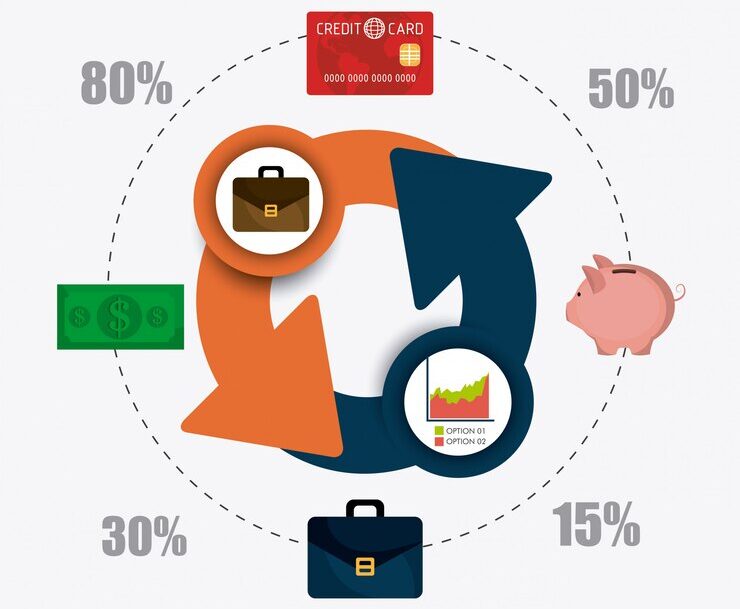How Consistent Follow-Up Can Increase Sales
In sales, follow-up is a vital step that’s often underestimated. While initial outreach is crucial to spark interest, it’s consistent follow-up that nurtures relationships, builds trust, and moves prospects down the sales funnel. Research shows that most sales require multiple touchpoints before a deal is closed, yet many salespeople give up after just one or two follow-ups. Here’s how a consistent, strategic follow-up approach can significantly increase your sales and keep your pipeline healthy.
1. Building Trust and Credibility
When you follow up consistently, you signal to prospects that you’re reliable, committed, and genuinely interested in helping them find a solution. Trust is an essential factor in any purchasing decision, especially in high-value or B2B sales.
- Demonstrates Reliability: Regular follow-ups show that you’re not just interested in a quick sale but in building a relationship. This reliability reassures prospects that you’ll be there for them throughout their journey.
- Establishes Expertise: Consistent follow-ups give you more opportunities to share insights, answer questions, and provide valuable information, positioning you as an authority in your field.
- Keeps You Top of Mind: Prospects are often busy, and your initial pitch may fade from their memory. A steady follow-up cadence helps keep your offering at the forefront of their mind.
Building trust and credibility with prospects through consistent follow-up makes it more likely that they’ll turn to you when they’re ready to make a decision.
2. Nurturing Leads Through the Sales Funnel
Not all leads are ready to buy immediately. Many require time and nurturing to reach a point where they’re comfortable committing. Consistent follow-up enables you to guide prospects through each stage of the buyer’s journey, from awareness to decision.
- Educating Prospects: Follow-up interactions provide a chance to educate leads about your product, industry trends, and how your offering can solve their specific pain points.
- Addressing Concerns: Regular follow-ups allow you to uncover and address any hesitations or objections they may have, such as budget concerns or product compatibility.
- Providing Value at Every Step: Nurturing involves providing something valuable with each interaction, whether it’s an industry report, a relevant blog post, or a case study. This approach builds interest and keeps them engaged.

By nurturing leads over time, you create a smoother path to conversion, ensuring that prospects don’t feel pressured but instead feel guided and informed.
3. Improving Conversion Rates
Multiple touchpoints can dramatically improve conversion rates. Studies show that 80% of sales require five follow-up calls after the initial meeting, but nearly half of salespeople give up after just one. Consistent follow-up ensures you stay in touch until the prospect is ready to commit.
- Increases Familiarity: Familiarity breeds trust. Prospects are more likely to convert when they feel they know you, and consistent follow-up builds this sense of familiarity.
- Creates a Sense of Urgency: As you follow up, you can highlight limited-time offers or remind prospects of the benefits of acting sooner rather than later, encouraging them to make a decision.
- Targets High-Quality Leads: Consistent follow-up helps you identify serious prospects. Those who remain engaged after multiple touchpoints are more likely to convert, allowing you to focus your efforts on leads with the highest potential.
A consistent follow-up strategy positions you to close more deals by keeping your offering in front of prospects until they’re ready to make a buying decision.
4. Strengthening Customer Relationships for Long-Term Success
Follow-up isn’t just for new prospects; it’s equally important for existing customers. Strengthening relationships through regular follow-up encourages repeat business and loyalty, which can lead to increased lifetime value.
- Enhances Customer Experience: Checking in after a sale to ensure customer satisfaction shows that you care about their experience and not just the sale. This attentiveness can lead to higher satisfaction and loyalty.
- Encourages Repeat Purchases: Regular communication keeps customers informed about new products, upgrades, or special offers, making them more likely to return for future purchases.
- Generates Referrals: Satisfied customers are more likely to recommend your business to others. Following up regularly helps you maintain a positive relationship, increasing the chances of referrals.
Strong, consistent follow-up with existing clients builds lasting relationships that translate into more business opportunities and a stronger reputation in the marketplace.
5. Creating Opportunities for Upselling and Cross-Selling
A well-timed follow-up can reveal new sales opportunities through upselling or cross-selling. When you’re in regular contact with customers, you’re better positioned to identify when they might benefit from an additional product or service.
- Understanding Customer Needs: Follow-up interactions allow you to learn more about a client’s evolving needs. This understanding enables you to recommend complementary products or services tailored to their business.
- Providing Solutions for Growth: As your clients grow, they may need more comprehensive solutions. Following up allows you to offer upgrades or expansions that align with their growth.
- Building Value Over Time: Consistent follow-up keeps you in the loop on how the customer is using your product or service. When you understand their usage, you can suggest value-adding features or services that enhance their experience.
A follow-up strategy focused on upselling and cross-selling allows you to add value to the customer’s experience while boosting your revenue.
6. Gathering Feedback to Improve Your Offerings
Consistent follow-up is an excellent way to gather feedback, helping you refine and improve your offerings. Engaging with prospects and customers regularly enables you to understand their challenges and adapt to meet their needs better.
- Identifying Pain Points: Follow-up conversations allow you to uncover common pain points, providing insight into how you can enhance your product or service.
- Improving Customer Satisfaction: When customers feel their feedback is valued, it increases their satisfaction and loyalty. Listening to feedback during follow-ups shows that you are responsive and committed to improvement.
- Adapting to Market Needs: Follow-up interactions can reveal shifts in customer preferences or new market trends. With this knowledge, you can adapt your offerings to meet changing demands.
Gathering feedback through follow-up not only helps strengthen customer relationships but also supports continuous improvement and market relevance.
7. Standing Out from the Competition
In many industries, follow-up is an area where businesses fall short, often due to a lack of time or resources. By following up consistently, you differentiate yourself from competitors who may neglect this critical step.
- Personalised Communication: A thoughtful, consistent follow-up approach creates a personal touch that many competitors may lack, especially if they rely on automated processes.
- Demonstrates Commitment to Service: When you follow up with prospects and customers alike, it shows a level of dedication that can set you apart in a crowded market.
- Memorable Brand Experience: Prospects and clients are more likely to remember and choose a brand that stayed in touch and provided relevant information over one that didn’t.
Being known as a company that consistently follows up can make a powerful impression and give you a competitive advantage in the market.
8. Increasing Sales Cycle Efficiency
Follow-up can help you better understand each prospect’s timeline and readiness to buy, allowing you to adapt your approach based on their stage in the sales cycle. Consistent follow-up makes the sales process smoother and more efficient.
- Identifies Buying Signals: Regular follow-ups give you opportunities to detect buying signals, allowing you to focus efforts on prospects who are close to a decision.
- Improves Sales Forecasting: When you know where each prospect is in the sales cycle, it’s easier to forecast sales accurately and allocate resources effectively.
- Streamlines the Process: Consistent follow-up helps you qualify leads more quickly, enabling you to weed out uninterested prospects early and dedicate time to those most likely to convert.

Following up effectively leads to a more streamlined sales cycle, saving time and resources while increasing conversion rates.
Conclusion: Fueling Sales Growth with Consistent Follow-Up
Consistent follow-up isn’t just a best practice; it’s a powerful strategy that can transform your sales outcomes. From building trust and nurturing relationships to improving conversion rates and gathering valuable feedback, a structured follow-up process is essential for driving long-term success in sales.
If you’re ready to implement a follow-up strategy that fuels your sales growth, Wingmen Consulting can help. Our team of experts will work with you to develop a customised follow-up plan that keeps you top of mind with prospects and builds lasting customer relationships. Book Your Free Sales Consulting Session today to learn how consistent follow-up can be the game-changer in your sales strategy. Schedule Your Free Consultation with Wingmen Consulting and start turning your follow-ups.
